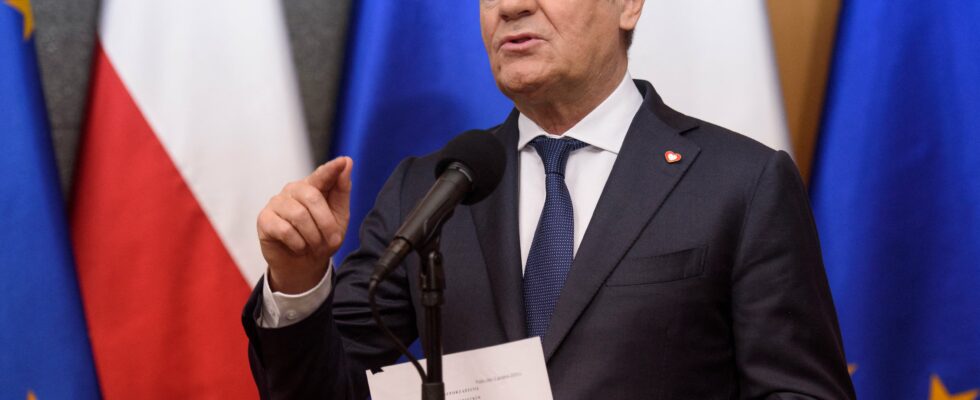On January 1, Poland will take over the presidency of the Council of the European Union with one theme on the program: security. A presidency for only six months, unfortunately, as provided for in European texts. Unfortunately, because at a time when war is assailing Europe in all its forms, it is time to realize that security is the No. 1 subject for at least the next ten years. Military security obviously in relation to Russia, economic security and supply of energy and raw materials in relation to China in particular, but also food security and security which could be described as civic in the face of cyberattacks and other orchestrated operations of disinformation and destabilization against our liberal democracies.
The key word of the Polish presidency is that security must be understood with its corollary, autonomy: Europe must prepare for supply disruptions and learn to rely only on itself in the event of a major crisis. In the field of security and defense, the obvious translation of this approach is the well-known maxim Si vis pacem, para bellum (“If you want peace, prepare for war”). The Europeans must prepare to defend themselves alone, even if they benefit from the American umbrella, the maintenance of which Trump today conditions on an increase in their defense effort. This autonomy cannot be conceived without a European industry to manufacture defense equipment made in Europe: how can we imagine that the peoples of the Old Continent accept rearmament, with serious budgetary consequences – we are talking here of expenditure representing 3 or 4% of GDP , when most European countries, particularly in the west of the continent, are operating at less than 2% – without the jobs that go with it?
Change the mindset
However, European heavy industry, stifled by excessively high energy prices, against a backdrop of a Chinese offensive with overcapacity in steel, is dying or leaving, particularly in the United States. Rest assured, Brussels tells us: the MACF will save us! So what is it? This “carbon border adjustment mechanism”, which came into force in autumn 2023 and which will be generalized in 2026, plans to tax imports with high carbon content. In theory, this tool of extraterritoriality of European climate policy is superb; the Chinese, and not the Europeans, will pay for the carbon contained in their industrial products if they want to export them to EU territory. These unnamed customs duties could represent up to 35% additional costs for imports of cement, aluminum, steel, etc. Except that we do not live in theory and that, already, the industrialists are warning: all, without exception, believe that this complex mechanism will be circumvented. On the other hand, the same European industrialists will see the disappearance of the free emission quotas which allowed them not to pay the carbon price that Europe is the only one in the world to impose on its economy.
Does prioritizing Europe’s security mean that the European climate agenda must be sacrificed? Obviously not. In a speech to the French electricity world meeting in Paris on December 10, the former Polish Minister of Energy and President of COP24 Michal Kurtyka proposed a vision illustrating the state of mind which now prevails in eastern Europe and, increasingly, in the Nordic countries: European autonomy is the objective, transition the consequence, and not the other way around. Climate policy must be the result, not the driver, of security and autonomy policies. Let us add, echoing the Draghi report, that autonomy is sister to competitiveness and productivity: it is impossible to be autonomous if you are poor…
It is a Copernican revolution that is proposed there. The Pole Copernicus revolutionized physics in the 15th century… What if Poland revolutionized European construction in the 21st century? We begin to dream of seeing Warsaw preside over the Council not for six months, but for five years…
.
